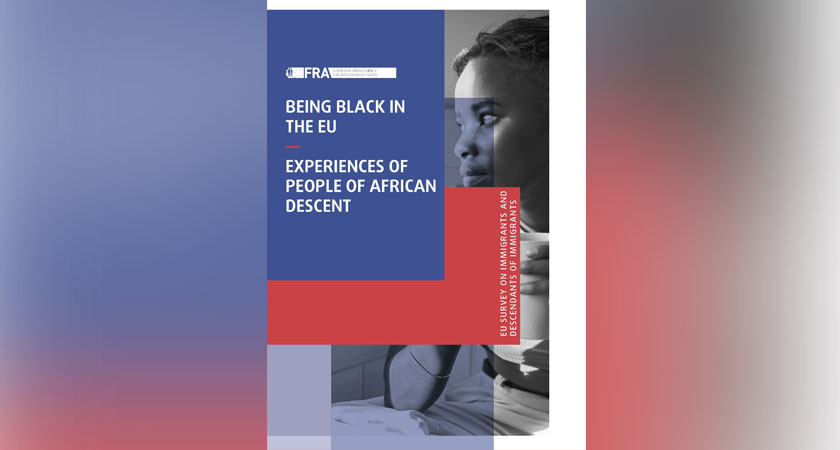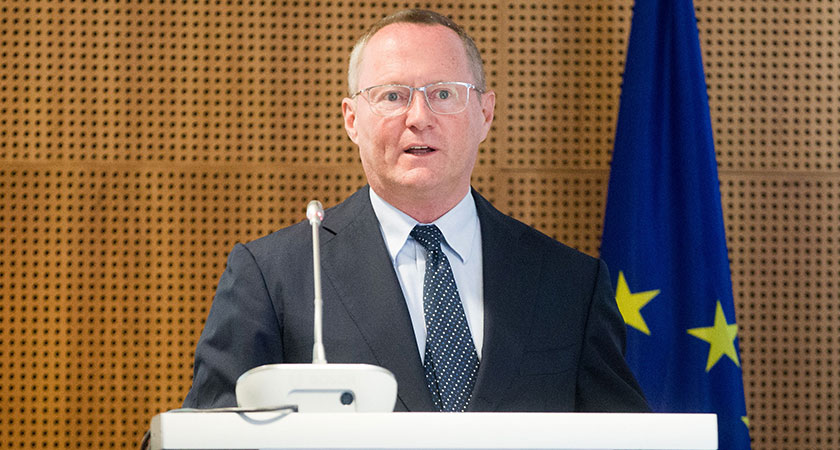A REPORT into the experiences of black people living in the EU suggests racism is on the increase in Ireland.
Being Black in the EU, published by the EU Agency for Fundamental Rights (FRA), also suggests black schoolchildren in Ireland experience levels of racial harassment that are among the highest in the EU.
The report says that almost half of people of African descent in the EU (45 per cent) face racism and discrimination in their daily lives, up from 39 per cent in 2016.
"It is shocking to see no improvement since our last survey in 2016," said FRA Director Michael O'Flaherty.
"Instead, people of African descent face ever more discrimination just because of the colour of their skin."
Sinéad Gibney, Chief Commissioner of the Irish Human Rights and Equality Commission (IHREC), told The Irish Post that while most people in Ireland value an inclusive and diverse society, the report suggests 'we still have a long way to go'.
Increase in discrimination
The report was based on surveys carried out in 2022 and analyses responses from 6,752 immigrants and descendants of immigrants of African descent in 13 EU member states.
It follows a similarly-named report published in 2018 that was based on a survey conducted in 2016.
According to the new report, 43 per cent of respondents in Ireland felt they had been racially discriminated against in the year before the 2022 survey, up from 30 per cent in 2016.
This was compared to an average of 34 per cent (2022) and 24 per cent (2016) across the EU member states surveyed.
The highest recorded instances of such discrimination were in Austria and Germany (both 64 per cent in 2022).
 The report follows a similar 2018 publication based on a 2016 survey (Image: EU Agency for Fundamental Rights)
The report follows a similar 2018 publication based on a 2016 survey (Image: EU Agency for Fundamental Rights)When asked if they had experienced racial discrimination in the five years before the 2022 survey, 55 per cent of respondents from Ireland said they had, up from 48 per cent in 2016.
This was compared to an average of 45 per cent (2022) and 39 per cent (2016) across the EU member states surveyed.
The highest recorded instances of such discrimination in 2022 were in Germany (76 per cent) and Austria (72 per cent).
The report also looked at the areas of life in which discrimination occurred.
In the five years before the 2022 survey, 43 per cent of those questioned in Ireland said they had experienced discrimination when trying to rent or buy property.
Meanwhile, 42 per cent said they had experienced discrimination in work during that time, with 41 per cent saying they felt discriminated against while looking for work.
Harassment at school
The survey also asked parents and guardians of schoolchildren if their dependents had experienced racial harassment at school in the 12 months before the 2022 survey.
The findings revealed Ireland had the highest percentage of schoolchildren experiencing offensive or threatening comments due to race (39 per cent) compared to an average of 23 per cent.
Ireland also had the highest percentage of schoolchildren (23 per cent) experiencing physical abuse due to race, almost four times the average of 8 per cent across 13 EU member states.
 FRA Director Michael O'Flaherty said the report's findings were 'shocking' (Image: GEORG HOCHMUTH/AFP via Getty Images)
FRA Director Michael O'Flaherty said the report's findings were 'shocking' (Image: GEORG HOCHMUTH/AFP via Getty Images)A reported 16 per cent of parents said their children had been made to feel isolated because of their background, which was also among the highest.
Austria (19 per cent) had the highest amount of such reports, with the average being 9 per cent.
Other findings in the report show that the number of respondents in Ireland aware of at least one equality body had fallen from 67 per cent in 2016 to 46 per cent in 2022.
Meanwhile, the number of respondents being stopped by law enforcement rose from 12 per cent in 2016 to 15 per cent in 2022, lower than the 21 per cent among the general population.
'No place for racism'
Commenting on the report, FRA Director Mr O'Flaherty, a human rights lawyer originally from Galway, said the EU needs to do more to tackle racial discrimination.
“Racism and discrimination should have no place in our societies," he said.
"The EU and its Member States should use these findings to better target their efforts and ensure people of African descent too can enjoy their rights freely without racism and discrimination."
Similarly, IHREC chief Ms Gibney called for 'sustained focus and coherent leadership from the State' to tackle racism in Ireland.
"All of our research has made it clear that the vast majority of people in Ireland value a more inclusive and diverse society and yet, as the findings from this report suggest we still have a long way to go," she told The Irish Post.
"Ireland is an ethnically diverse country. All racism, from explicit racism to a more subtle and insidious form has a lasting detrimental effect on those suffering it.
"Of particular concern are the findings relating to children in Ireland, and the prevalence of racist bullying or harassment.
"Tackling racism is a long-term project which requires a sustained focus and coherent leadership from the State.
"There continue to be significant gaps in the national survey and administrative data available on minority ethnic groups, and concerns about its availability, quality, and use."

